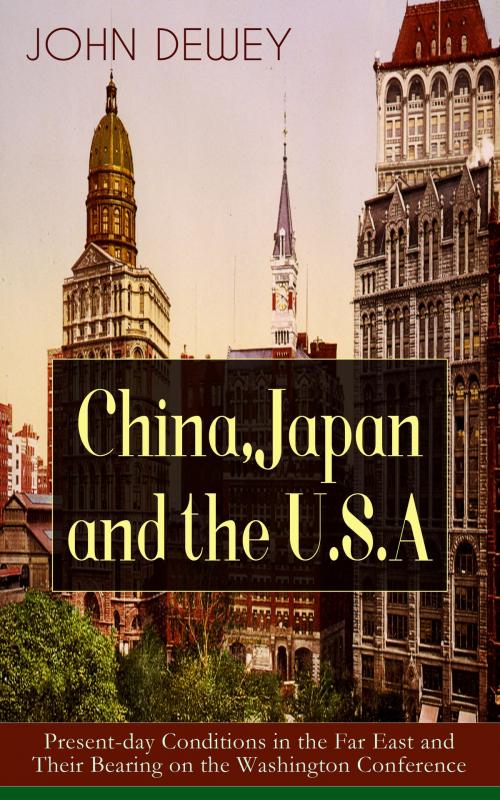China, Japan and the U.S.A: Present-day Conditions in the Far East and Their Bearing on the Washington Conference
Critical Insights on the Impact of Eastern Powers on United States by the Renowned Philosopher, Psychologist & Educational Reformer of 20th Century; Including His Personal Letters from China and Japan
Nonfiction, Social & Cultural Studies, Political Science, Government| Author: | John Dewey | ISBN: | 9788026853831 |
| Publisher: | e-artnow | Publication: | May 14, 2016 |
| Imprint: | Language: | English |
| Author: | John Dewey |
| ISBN: | 9788026853831 |
| Publisher: | e-artnow |
| Publication: | May 14, 2016 |
| Imprint: | |
| Language: | English |
This carefully crafted ebook: "China, Japan and the U.S.A: Present-day Conditions in the Far East and Their Bearing on the Washington Conference" is formatted for your eReader with a functional and detailed table of contents. In 1919, while traveling in Japan on sabbatical leave, John Dewey was invited by Peking University to visit China. Dewey and his wife, Alice, arrived in Shanghai on May 1, 1919, just days before student demonstrators took to the streets of Peking to protest the decision of the Allies in Paris to cede the German held territories in Shandong province to Japan. Their demonstrations on May Fourth excited and energized Dewey, and he ended up staying in China for two years, leaving in July 1921. In these two years, well aware of both Japanese expansionism into China and the attraction of Bolshevism to some Chinese, Dewey advocated that Americans support China's transformation and that Chinese base this transformation in education and social reforms, not revolution. Their works and letters from China and Japan describing their experiences to their family were published in 1920. John Dewey (1859-1952) is one of the primary figures associated with the philosophy of pragmatism and is considered one of the founders of functional psychology. His ideas have been influential in education and social reform. Known for his advocacy of democracy, Dewey considered two fundamental elements—schools and civil society—to be major topics needing attention and reconstruction to encourage experimental intelligence and plurality.
This carefully crafted ebook: "China, Japan and the U.S.A: Present-day Conditions in the Far East and Their Bearing on the Washington Conference" is formatted for your eReader with a functional and detailed table of contents. In 1919, while traveling in Japan on sabbatical leave, John Dewey was invited by Peking University to visit China. Dewey and his wife, Alice, arrived in Shanghai on May 1, 1919, just days before student demonstrators took to the streets of Peking to protest the decision of the Allies in Paris to cede the German held territories in Shandong province to Japan. Their demonstrations on May Fourth excited and energized Dewey, and he ended up staying in China for two years, leaving in July 1921. In these two years, well aware of both Japanese expansionism into China and the attraction of Bolshevism to some Chinese, Dewey advocated that Americans support China's transformation and that Chinese base this transformation in education and social reforms, not revolution. Their works and letters from China and Japan describing their experiences to their family were published in 1920. John Dewey (1859-1952) is one of the primary figures associated with the philosophy of pragmatism and is considered one of the founders of functional psychology. His ideas have been influential in education and social reform. Known for his advocacy of democracy, Dewey considered two fundamental elements—schools and civil society—to be major topics needing attention and reconstruction to encourage experimental intelligence and plurality.















